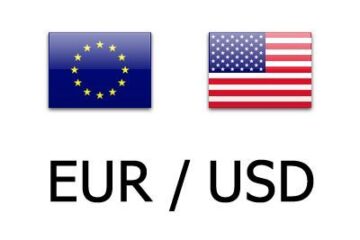You don’t know what a mullet is? Then Google it.
Pop that question to Alphabet’s (GOOGL) search engine giant and the first answer you’re likely to get is related to the fish, which is described as “a family of chiefly marine bony fishes with an elongate rather stout body.”
💵💰Don’t miss the move: Subscribe to TheStreet’s free daily newsletter 💰💵
And then there’s the men’s hairstyle, where a man’s locks are cut short on the sides and top and long at the back.
The dictionary says use of the term mullet to describe this hairstyle was “apparently coined, and certainly popularized, by American hip-hop group the Beastie Boys,” who used “mullet” and “mullet head” as epithets in their 1994 song “Mullet Head.”
The hairdo has cropped up throughout history, on figures such as the Roman emperor Tiberius and his great-nephew — and the original party animal — Caligula.
David Bowie, Rod Stewart, Keith Richards and Paul McCartney were among the rock stars who went with the mullet in the early 1970s, and even Superman sported the distinctive do in 1993 when the Man of Steel came back from the dead.
Alphabet CEO Sundar Pichai’s company is contending with increased competition and an economic slowdown. Photo: David Paul Morris/Bloomberg via Getty Images
Firm sees potential DOGE impact
Jefferies analyst Brent Thill referenced that singular hairstyle when he lowered the investment firm’s price target on Alphabet (GOOGL) to $200 from $235 and affirmedf a buy rating on the shares of the search, advertising and cloud-services giant.
Thill lowered price targets across its U.S. software coverage to account for recent compression of stock multiples, which reflected softening macroeconomic factors affecting deal decisions across technology companies, TheFly reported.
More Tech Stocks:
Analysts revisit Apple stock price targets as Cook courts BeijingVeteran trader takes hard look at Tesla stock price amid slump, controversyAnalysts rework Micron stock price targets after earnings
Alphabet shares are down 18% year-to-date. The shares closed Monday regular trading up 0.2% at $154.64.
The analyst said “we may have another ‘mullet’ year in software” with first-half chop followed by second-half flow.
Thill, who grew up in Minnesota, said on CNBC that “I’ve got business on up front and then the party in the back.”
“We’ve said that you’re going to have a lot of chop in the front half and the flow hopefully comes in the back,” he explained. “We believe that right now a lot of these decisions could be pushed out based on what we’re hearing and seeing.”
While not yet lowering estimates — Thill awaits first-quarter checks and says recent guidance levels were set for no material improvement — the analyst said that ongoing uncertainty means “investors are waiting on the sidelines to assess the impact.”
“We believe AI’s early and that will have an impact later in the year, but expectations have been too high in AI for software and none of these companies are seeing more than 5% of their total revenue related to AI,” he said.
Looking to the second half, Thill said the federal job cuts spearheaded by Tesla (TSLA) Chief Executive Elon Musk and the Department of Government Efficiency “will help software because if you’re going to reduce the number of employees you have to have, you have to get the job done.”
Analyst wonders whether Google is the next Kodak
“I think Musk and others in the government are believers that software will pick up,” Thill said. “I think that will help in the back end of the year.”
Meanwhile, Melius Research analyst Ben Reitzes was wondering whether Google was the next Kodak, the photography giant that declined after failing to adapt to the digital revolution, ultimately leading to bankruptcy in 2012.
“We have focused on ‘the simple’ with Alphabet since our launch in mid-2023 — and that view is predicated on the view that Google is losing the next generation of ‘searchers’ to ChatGPT,” he wrote, according to Morningstar.
Reitzes noted that Kodak’s management once insisted that the company could keep pace as digital cameras proliferated, through both continued demand for traditional film and a need for digital-camera users to print ever more of the photos they were taking. Kodak even had its own digital cameras.
“Metaphorically speaking, OpenAI’s home page is arguably this generation’s ‘digital camera,'” he wrote. “The loyal ad buyers for Google ads are arguably the loyal ‘photofinishers’ who may prove to be fickle if the ads see diminishing returns.”
Related: Analyst revisits Google parent price target after major acquisition
Alphabet also has a branding problem, he said, noting that Google is a verb but its Gemini artificial-intelligence offering isn’t.
ChatGPT, however, has “verb” status with younger users, who, Reitzes wrote, will say things like they “ChatGPTd” their papers for school.
Wells Fargo analyst Ken Gawrelski also lowered the firm’s price target on Alphabet, to $167 from $184, and maintained an equal weight rating on the shares.
At recent trough multiples and with investor sentiment bearish, the firm is tempted to become more constructive on Alphabet shares, the analyst said
Gawrelski is sticking to his cautious stance as conviction in its search-disruption thesis and below-consensus estimates grows.
Related: Veteran fund manager unveils eye-popping S&P 500 forecast


